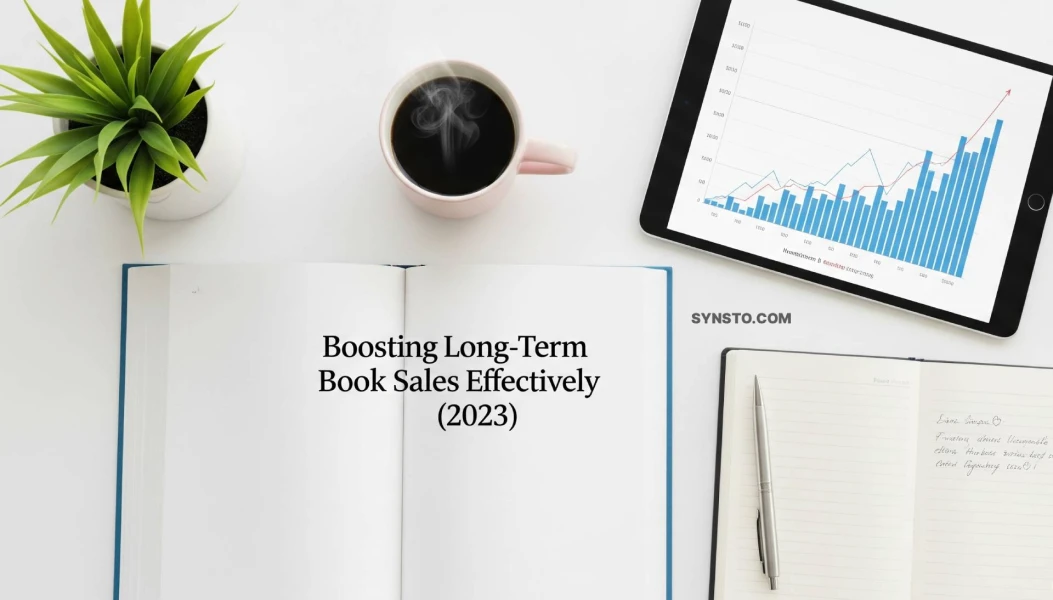Understanding the Dynamics of Book Sales
In the world of book publishing, initial sales might bring a wave of excitement, but the real challenge lies in ensuring those sales don't fizzle out over time. Understanding the dynamics of book sales is crucial in devising strategies that ensure your book doesn't just shine briefly but continues to attract readers long after its initial release. This involves a multifaceted approach that includes marketing, audience engagement, and leveraging digital tools effectively.
Leveraging SEO for Books
Search Engine Optimization (SEO) is not just for blogs or websites; it plays a vital role in book sales as well. Properly optimized book titles, descriptions, and even author bios can make a significant difference in how your book appears in search engine results. When potential readers search for topics related to your book, having the right keywords can help your book appear in search results, bringing it to the attention of more readers.
Start by researching keywords that are relevant to your book's content. Use tools like Google Keyword Planner or Ubersuggest to find out what potential readers are searching for. Incorporate these keywords naturally into your book's title, subtitle, description, and in any online content you create to promote your book. Remember, the goal is to ensure your book is easily discoverable by those searching for related topics.
Building a Strong Author Platform
Your personal brand as an author is just as important as the book itself. A strong author platform can be a powerful tool in maintaining long-term book sales. This includes having an engaging website, active social media profiles, and a consistent presence in online and offline book-related communities. Engage with your audience through regular blog posts, newsletters, and social media updates. Share insights, behind-the-scenes looks at your writing process, and engage with your readers by responding to comments and questions.
Building a community around your writing not only helps in selling your current book but also builds anticipation for your future works. This continuous engagement keeps your audience invested in your work and can significantly contribute to long-term sales.
Utilizing Email Marketing
Email marketing remains one of the most effective tools for engaging with your audience. Building an email list allows you to communicate directly with readers who are already interested in your work. Use this platform to provide exclusive content, updates on new releases, and special offers. A well-crafted email newsletter can offer insights into your writing process, share reviews, and even include personal anecdotes to connect with your readers on a deeper level.
Remember, the key is to provide value in every email. Keep your readers engaged by offering content that they find interesting and useful, ensuring they look forward to your emails rather than considering them as spam.
Engaging in Continuous Learning and Adaptation
The publishing industry is continuously evolving, with new trends and technologies emerging regularly. To ensure long-term success in book sales, it's vital to stay informed about these changes. Engage in continuous learning by attending workshops, webinars, and conferences related to book marketing and publishing. Read industry blogs and connect with other authors to share insights and experiences.
Adaptability is key. Be open to trying new marketing strategies, experimenting with different formats, and exploring new platforms. Whether it's venturing into audiobooks, exploring self-publishing options, or partnering with influencers, constantly adapting to the changing landscape can help keep your book relevant and appealing to new audiences.
Harnessing the Power of Reviews and Testimonials
Positive reviews and testimonials can significantly impact your book's credibility and attractiveness. Encourage your readers to leave reviews on platforms like Amazon, Goodreads, and your personal website. Reviews not only boost your book's visibility but also provide social proof to potential readers.
Consider offering review copies to bloggers, influencers, and book clubs who might be interested in your book. Engage with the reviewers by thanking them for their feedback and addressing any concerns they might have. This approach not only helps in generating more reviews but also strengthens your relationship with your audience.
Collaborating with Other Authors
Collaboration can be a powerful tool in the publishing world. Partnering with other authors, especially those in a similar genre, can help you reach a wider audience. Consider co-hosting online events, participating in anthologies, or even cross-promoting each other's work on social media and newsletters.
Collaboration opens up new avenues for exposure and can introduce your work to readers who might not have discovered it otherwise. By supporting fellow authors and building a network, you create a mutually beneficial environment that can contribute significantly to long-term sales success.
Investing in Quality Content
At the end of the day, the quality of your content is what will ultimately drive long-term sales. Invest time and effort into writing the best book you can. Ensure that your book is well-edited, has an appealing cover, and is presented professionally. Quality resonates with readers and often leads to word-of-mouth recommendations, which are invaluable in sustaining book sales.
Remember, every aspect of your book—from the writing style to the physical presentation—impacts how it's perceived by readers. Prioritize quality and authenticity in your writing, as this is what will leave a lasting impression and keep readers coming back for more.

